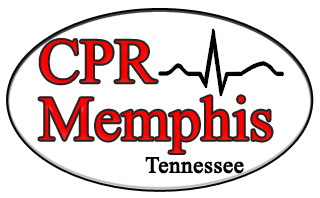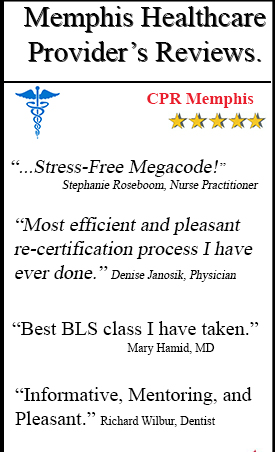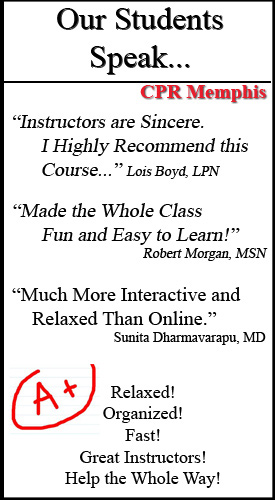When someone experiences sudden cardiac arrest, the clock starts ticking immediately. Every moment without intervention reduces the chance of survival. Understanding the power of immediate CPR can mean the difference between life and death for someone in your community.

Why Is Immediate CPR Important?
Immediate CPR can double or triple the chances of survival after cardiac arrest. When the heart stops beating, blood stops flowing to vital organs, especially the brain. Brain damage begins within minutes of oxygen deprivation, making swift action critical.
Survival chances decrease by 10% for every minute that immediate CPR and use of an AED are delayed. This startling statistic from the American Red Cross highlights why bystander intervention matters so much. According to the Cardiac Arrest Registry to Enhance Survival (CARES) 2024 Annual Report, patients whose arrests were witnessed by a bystander were over three times more likely to survive than those whose arrests were unwitnessed (16.0% vs. 4.5%).
Most cardiac arrests happen at home. Data shows that 73.4% of out-of-hospital cardiac arrests occur in homes or residences, followed by public settings at 16.3%. This means you’re most likely to save someone you know and love. However, only about 40% of people who experience an OHCA get the immediate help that they need before professional help arrives.
What Is the Power of CPR?
The true power of immediate CPR lies in its ability to maintain blood circulation when the heart cannot. Chest compressions manually pump blood through the body, delivering oxygen to the brain and other vital organs. This keeps tissues alive until advanced medical help arrives.
Recent research presented at the European Society of Cardiology conference reinforces this power. People who received CPR within two minutes had an 81% greater chance of surviving and being discharged from the hospital and a 95% higher chance of surviving without significant brain damage. Even when CPR starts later, benefits remain substantial. People who did not receive CPR until up to 10 minutes later had a 19% higher survival rate than those who received no CPR.
The mechanism behind CPR’s effectiveness is straightforward. Each compression creates pressure in the chest cavity, pushing blood from the heart into major arteries. When pressure releases, the chest recoils, allowing blood to refill the heart. This cycle mimics the heart’s natural pumping action, maintaining circulation until normal heart rhythm can be restored through defibrillation or advanced medical intervention.
Consider these compelling statistics: approximately 350,000 out-of-hospital cardiac arrests occur annually in the United States. Globally, cardiac arrest claims more lives than colorectal cancer, breast cancer, prostate cancer, influenza, pneumonia, auto accidents, HIV, firearms, and house fires combined. Yet with immediate CPR, survival rates dramatically improve.
What Best Describes the Purpose of Immediate CPR?
The primary purpose of immediate CPR is to maintain critical blood flow to the brain and other vital organs during cardiac arrest. When the heart stops, oxygen-rich blood ceases circulating. The brain, being extremely sensitive to oxygen deprivation, begins deteriorating rapidly.
Immediate CPR serves as a bridge to advanced care. It buys precious time by manually circulating blood, keeping brain tissue alive and responsive. This increases the likelihood that defibrillation will successfully restart the heart. Studies demonstrate that CPR plus defibrillation within 3–5 minutes of collapse can produce survival rates as high as 49–75%.
The American Heart Association emphasizes that immediate CPR focuses on chest compressions to restore blood circulation. These compressions generate enough pressure to push blood to vital organs, preventing irreversible damage. The sooner CPR begins, the better the outcomes.
Timing matters significantly. Emergency Medical Services typically take 7-8 minutes to arrive after a 911 call. During these crucial minutes, bystander CPR makes the critical difference. Each compression maintains minimal blood flow, preserving organ function and increasing the chances that advanced medical interventions will succeed.
What Happens If You Do CPR Too Fast?
While immediate CPR is crucial, quality matters as much as speed. The American Heart Association recommends performing chest compressions at a rate of 100 to 120 compressions per minute. Going beyond this range creates problems.
Compressing too fast can prevent the heart from fully refilling with blood, reducing the volume of blood circulated with each compression. When compressions exceed 120 per minute, several complications arise. The heart doesn’t have adequate time to refill between compressions, resulting in decreased blood output despite more frequent compressions.
Research on compression rates reveals concerning findings. During push-fast sessions, rescuers performed CPR with higher compression rates (156.8 vs 101.6 cpm) but achieved a lower percentage of effective compressions (47.7% vs 57.9%) and lower compression depth. This demonstrates that faster doesn’t mean better.
Chest compression depth became less as chest compression rates became faster, especially with rates above 140 per minute. Shallow compressions fail to generate adequate pressure for effective blood circulation. Additionally, excessive compression rates cause rescuer fatigue, leading to further quality deterioration over time.
The venous return of blood becomes compromised when compression rates exceed recommendations. Blood needs time to flow back into the heart between compressions. Without sufficient filling time, each compression moves less blood, defeating the purpose. Studies show that compression rates between 100 and 120 per minute were associated with the greatest survival to hospital discharge.
Fast compressions also increase the risk of complications. Rapid rates may cause rib fractures or damage to internal organs. Furthermore, rescuers performing excessively fast compressions tire quickly, compromising their ability to maintain proper depth and rhythm throughout the resuscitation effort.
How to Perform Effective Immediate CPR
Proper technique ensures maximum effectiveness. First, check for responsiveness by tapping the person’s shoulders and shouting. If unresponsive and not breathing normally, call 911 immediately. Begin chest compressions right away.
Position yourself beside the person on a firm surface. Place the heel of one hand on the center of the chest, between the nipples. Place your other hand on top, interlacing your fingers. Keep your arms straight and position your shoulders directly over your hands.
Push hard and fast, compressing the chest at least 2 inches deep for adults. Maintain the rhythm of 100 to 120 compressions per minute—think of the beat of the song “Stayin’ Alive” by the Bee Gees. Allow complete chest recoil between compressions. This means lifting your hands completely off the chest after each compression to allow the heart to refill.
Continue compressions until emergency medical services arrive or an automated external defibrillator (AED) becomes available. If trained in rescue breathing, provide 30 compressions followed by 2 rescue breaths. However, hands-only CPR (continuous chest compressions without breaths) is equally effective for adults and easier for untrained bystanders.
The Impact of Proper CPR Training
Quality CPR training empowers ordinary people to become lifesavers. Proper training teaches the correct compression rate, depth, and hand placement. It builds confidence through hands-on practice with feedback devices that ensure technique mastery.
Training addresses common mistakes. Many people compress too softly, too quickly, or fail to allow complete chest recoil. Practice sessions with instructor feedback help develop muscle memory for the correct rhythm and depth. This ensures that during an actual emergency, your response will be automatic and effective.
Understanding when to start CPR is equally important. Training helps you recognize cardiac arrest signs, including sudden collapse, unresponsiveness, and absent or abnormal breathing. Recognizing agonal gasps—irregular, gasping breaths that occur in the first minutes after cardiac arrest—as a sign to begin CPR rather than normal breathing is crucial.
Studies consistently show that communities with widespread CPR training have better survival rates. Trained bystanders are more likely to act quickly and perform high-quality compressions. The confidence gained through certification courses translates directly to lives saved in real emergencies.
Take Action: Get Certified Today
Every community needs more trained responders. Cardiac arrest can strike anyone, anywhere, at any time. Being prepared means someone’s parent, spouse, child, or friend has a fighting chance.
Don’t wait until an emergency happens to wish you knew CPR. The power of immediate CPR is only unleashed when someone knows how to perform it correctly. Professional training provides the skills, confidence, and certification you need to make a difference.
Ready to become a lifesaver? CPR Memphis, an American Heart Association training site, offers comprehensive certification courses in BLS for Healthcare Providers, ACLS, PALS, and CPR and First Aid. Our classes are stress-free and hands-on, ensuring you gain practical skills that stick with you long after training. Whether you need initial CPR certification in Memphis or BLS certification in Memphis renewal, we provide the expert instruction you need.
Take the first step today. Enroll in a certification course and gain the power to save lives. When seconds count, your immediate action with proper CPR technique could be the difference between tragedy and triumph. Visit CPR Memphis and become the person who knows exactly what to do when it matters most.





